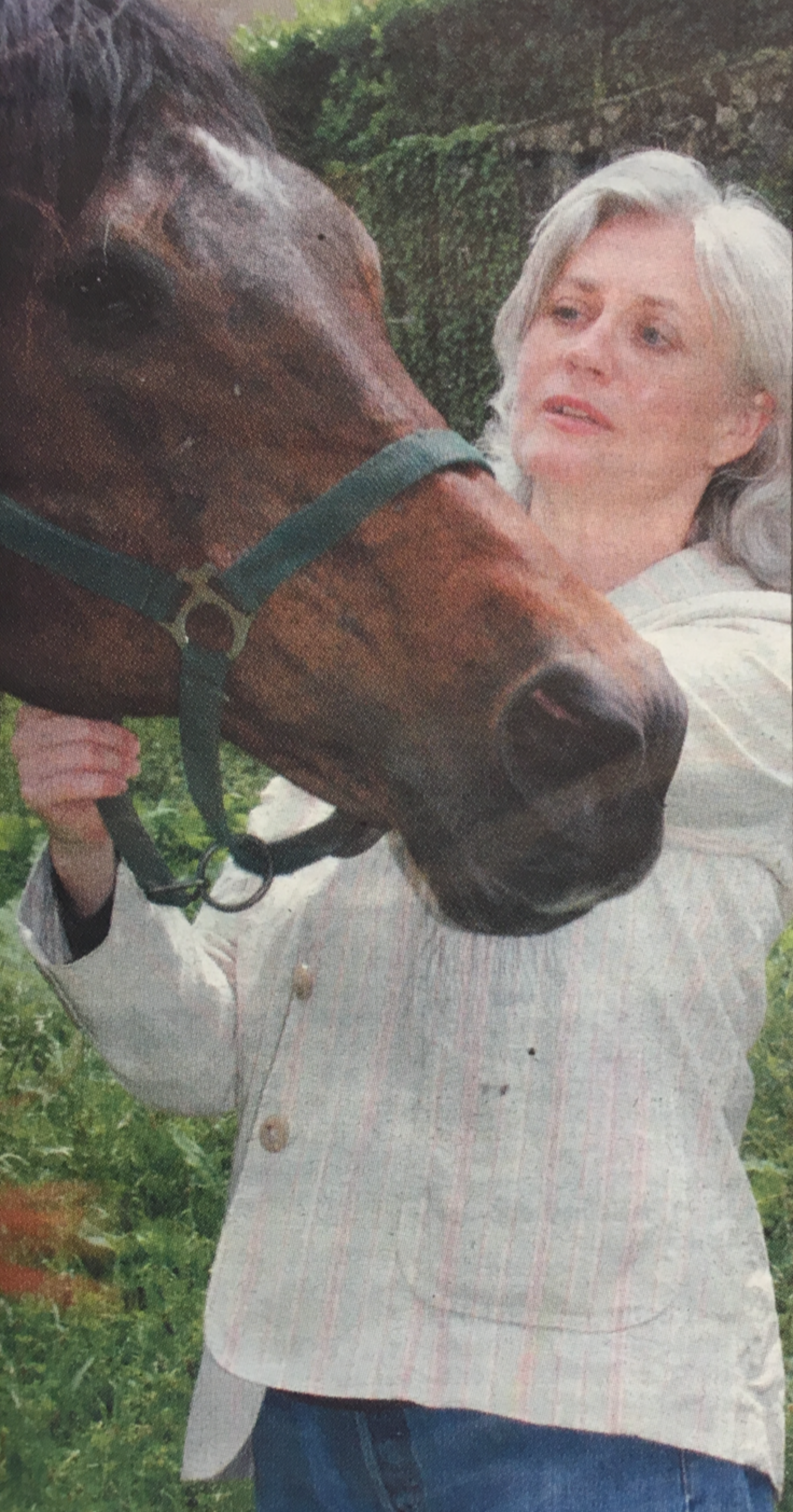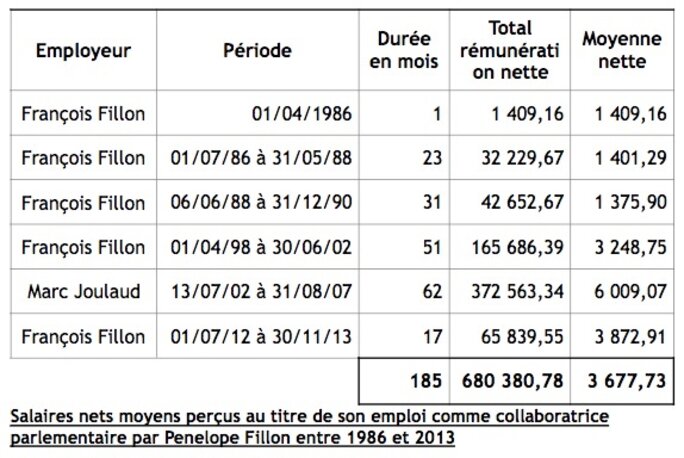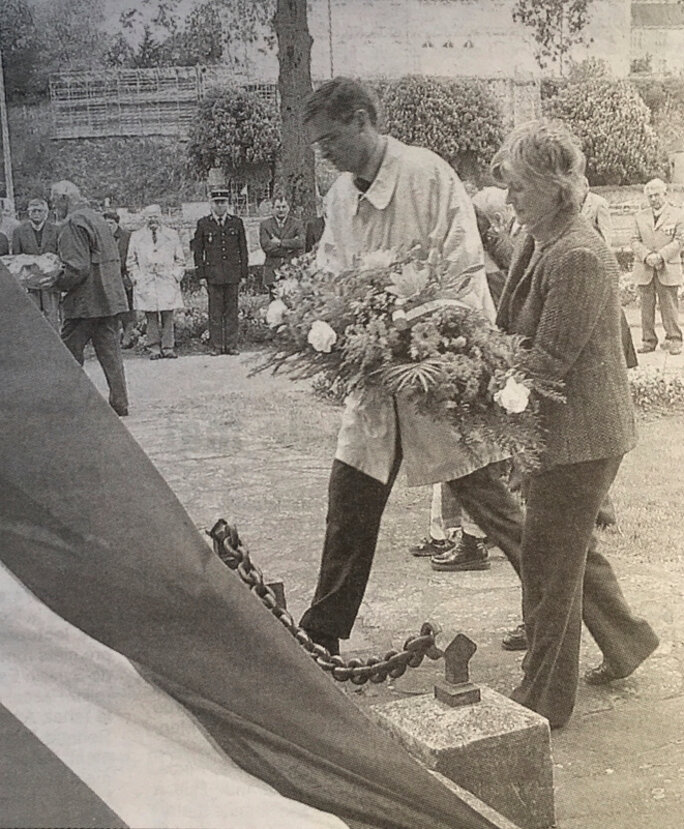It was in January when the first press revelations emerged that the conservative presidential candidate François Fillon had employed his wife Penelope as his parliamentary assistant over several years during the period between 1986 and 2013.
The employment by Members of Parliament (MPs) of family members is in itself not illegal, but in Fillon’s case it was alleged that his wife did not in fact carry out the work she was paid for out of parliamentary, and therefore public, funds. According to Fillon’s own calculations, his wife received a total of more than 680,000 euros as parliamentary assistant to himself and, when he became a minister in 2002, to the deputy who stood in for him as active MP.
With little evidence that Penelope Fillon actually worked at the National Assembly, to which she had no official security pass nor internal email address, the couple have both claimed she was in fact primarily active in François Fillon’s constituency in north-west France, where, according to Penelope, “I accompanied him in every village”.
The magistrates leading a judicial investigation into the suspected fraud in April contacted local newspapers that cover the constituency to request they search their archives for articles about her official activities there. That request was politely turned down, prompting Mediapart to carry out a lengthy study of local press archives, and the result, detailed below, provides little to support the claims of “Lady discrète”, as one article called her, and François Fillon.

Enlargement : Illustration 1

The January revelations by the satirical and investigative weekly Le Canard Enchaîné were followed by others; Penelope Fillon was also paid about 100,000 euros between 2012 and 2013 by La Revue des Deux Mondes, an obscure review with a modest circulation and which is owned by Fillon’s billionaire friend Marc Ladreit de Lacharrière. The then editorial director of the review, Michel Crépu, reacting to the disclosure of her remuneration, told weekly news magazine Marianne that he had “never had any dealings with her [Penelope Fillon], neither physically, nor on the phone, nor even by email”.
The fake jobs allegations, which became dubbed “Penelopegate” by the French media, torpedoed Fillon’s election campaign. Chosen by his conservative Les Républicains party as its candidate last November, he began campaigning with a convincing lead in opinion polls – and well ahead of Emmanuel Macron. But the disclosure that his wife had for years received a generous salary from him paid out of public funds was in stark contrast to his manifesto centred on an austerity programme aimed at slashing public spending, with the promise to shed 500,000 jobs from the public sector and the abolition of the 35-hour working week.
Following a preliminary enquiry, the judicial probe into the suspected fake jobs scam was launched in March, when Fillon, 63, was placed under investigation for suspected “aggravated fraud”, “misappropriation of public funds, conspiracy and receiving the proceeds of misappropriation of public funds, complicity and receiving the proceeds of the misappropriation of company assets, and failing to respect the declaration requirements of the High Authority for Transparency in Public Office”. Penelope Fillon was later also placed under investigation.
Under French law, a person can only be formally placed under investigation if the magistrates leading a judicial enquiry believe there is “serious or corroborative evidence” that he or she committed an offence. It is at the end of the investigation that the suspect is either cleared and the case dropped, or otherwise charged and sent for trial.
Both François Fillon and his wife Penelope strongly deny any wrongdoing.
Fillon, who came third in the presidential elections, has since retired, at least in the short term, from active politics, after a career that began in 1981, one year after his marriage to Penelope née Clarke, as an MP in a constituency of the Sarthe département (county) in north-west France, where he was raised and which would become his political fiefdom. Fillon, who has held numerous ministerial posts beginning in 1993, remained an MP in the constituency until 2007, when he was appointed prime minister by Nicolas Sarkozy, who he served throughout his five-year presidency.
“François was elected for the first time just after our marriage,” said Penelope Fillon in an interview in March with French weekly Le JDD. “I accompanied him in all the villages of his constituency. That’s when I began to like the Sarthe. My role was to help him in his relationship as an elected representative with the people.”
Asked about what, more recently, was the nature of the work she did for her husband, Penelope Fillon said: “I looked after the mail correspondence along with the secretary. I prepared notes and cards for my husband about local events in the constituency, so that, with my memos, he could give his speeches. I also prepared for him a sort of review of the local press. I represented him at events. I re-read his speeches.”

That echoed what François Fillon told French television in a studio interview in January, shortly after the first revelations by Le Canard Enchaîné. “My wife has worked for me since forever, since 1981, since my first election,” he said. “She has always accompanied me in my political life and elsewhere. I think I would not have led the path that I have without her support and her help. She has corrected my speeches, she has met innumerable people who wanted to see me and who I couldn’t see. She has represented me in meetings, in associations, she did press summaries for me, and above all she – because everybody would tell you in the Sarthe that Penelope Fillon is simple, ready to listen to people and available – she informed me of what people wanted, she informed me about the evolutions in our society.”
In April, judge Serge Tournaire, one of the magistrates leading the investigation into the couple’s suspected fraud, contacted several newspapers which cover the area in and around Fillon’s constituency to request that they provide him with any articles about Penelope Fillon’s activities locally. In the magistrate’s missive, he asked for “any published article evoking Mrs Penelope Fillon, and notably all articles relating to her participation in local events (inaugurations, official ceremonies, visits to hospitals, homes for the elderly, exhibition previews, various competitions, etc.) published between 1998 and 2016”.

Enlargement : Illustration 3

Local press group Publihebdos replied that it was unable to carry out what it called such “colossal research” of an almost 20-year period, but that its archives were at the magistrates’ disposition to search. Mediapart decided to embark on its own research of the three major local newspapers, the weekly Les Nouvelles de Sablé, the daily Le Maine libre and the local edition of regional daily Ouest-France, all of which are archived at the French National Library in Paris.
After long hours of research of the period 1998-2016, just 19 articles mentioning Penelope Fillon were found, although it is possible that some were overlooked. Most of the references to her were anecdotal, referring to her in terms of ‘the wife of’, a mother of five who lived a life that was apparently light years away from her husband’s political world.
In a full-page article published on May 31st 2007, just after Fillon was appointed as prime minister, local paper Les Nouvelles de Sablé carried its first interview with his wife, who it described as “Lady discrète”. That same month, she also gave an interview to British newspaper The Sunday Telegraph in which she commented that she had then recently begun an Open University degree course in English literature. "I realised that my children have only known me as just a mother but I did a French degree, I qualified as a lawyer and I thought 'Look here, I'm not that stupid',” she told the weekly. “This will get me working and thinking again."
The May 2007 article in Les Nouvelles de Sablé contained two large photos taken during the interview, which were captioned: “Penelope Fillon was destined for a profession of solicitor or lawyer. She finally chose that of a mum and wife of a politician.” By then, she had been paid a total of around 600,000 euros as her husband’s parliamentary assistant, and that of his deputy.
“Politics was never a real subject of conversation in the house,” Penelope Fillon told the paper. She was asked whether she gave advice to her husband. “From time to time, yes,” she replied. “Often, I don’t have any reactions”.
Ten years later, in her interview this March with national weekly Le JDD, Penelope Fillon had a different version of her role. “I have always been associated with the political choices [of François Fillon]. He has total confidence in me, for my discretion and also for my loyalty.”
In 2002, following the re-election of Jacques Chirac as president, François Fillon was appointed as labour and social affairs minister in the new conservative government. In 2004, he became education minister, and in 2005 left the government after his election as a senator (Fillon was allied to Nicolas Sarkozy as the latter prepared his successful 2007 presidential bid, after which Fillon was appointed prime minister, serving until 2012). During this period between 2002 and 2012, it was Fillon’s deputy, Marc Joulaud, who served as stand-in MP for his constituency, a common practice in French politics when an elected MP becomes a member of government.
Between 2002 and 2007, Penelope Fillon was nominated by Joulaud as his parliamentary assistant, with an average net monthly salary of just more than 6,000 euros. “As he was less known, my work alongside him gave him legitimacy,” she told Le JDD in March. However, in March 2005, Joulaud was interviewed by Les Nouvelles de Sablé, the local newspaper in his constituency, when he said he employed two people, “one works at the National Assembly, the other looks after my constituency office”. A check of the National Assembly staff register dating from that period gives the names of the two as Igor Mitrofanoff (based in Paris) and Jeanne Robinson-Behre in the constituency office in Sablé.
In her May 2007 interview with Les Nouvelles de Sablé, Penelope Fillon revealed that she moved to Paris with her husband in 2002. “François had just been appointed to [the ministry of] social affairs, and he had come to realize, with age, that he had not seen the [children] grow up,” she told the paper. That move may be the reason why, during the 2002-2007 Chirac presidency, she is mentioned only four times in the local press. The first of these was an article in January 2004 in the local edition of Ouest-France, which was about “the traditional” meal party that gathered together members of local associations in Fillon'sconstituency, held at the village of Solesmes, where the Fillon family own a manor house. The event, reported the paper, was attended by “160 people in the village hall”, and was joined by “a prestigious guest: François Fillon, Minister of Labour, accompanied by his wife Penelope”.
Just a few months later, on VE Day, May 8th 2004, Les Nouvelles de Sablé reported that Penelope Fillon attended a commemoration ceremony for former Sablé WWII prisoners of war, which followed a celebration of mass in the local Notre-Dame church. “Marc Joulaud […] and Penelope Fillon, who represented her husband kept away by ceremonies in Paris […] laid wreaths at the war memorial,” the paper reported. Two photos captured her apparently rare public presence alongside her employer at the ceremony.

Enlargement : Illustration 4

In April 2005, during campaigning for the French referendum on acceptance of the new European constitution, local paper Le Maine libre reported that “the wife of François Fillon, Minister of Education and an elected representative of the Sarthe”, herself “member of the Sarthe committee for the yes vote”, was to lead a delegation of its members on a visit to Paris in an event called “Women engaged in favour of Europe”.
Then, in the autumn of 2006, Ouest-France referred to her presence among a group of local politicians from the Sarthe as they visited Paris. “Fifty-one people, mayors, municipal councillors and their spouses, and several town hall secretaries took part in the trip,” it reported. The group tour, organised by a regional councillor, included a visit of the Senate and Parisian landmarks. “François Fillon […] having been held back at the last minute, it was his wife who joined up with the group,” added the paper.
Those reports, and the May 2007 interview cited earlier, are the only articles for the period 2002-2007 that mention Penelope Fillon in the local press consulted by Mediapart.
Concerning the five years during which Penelope Fillon was employed by Joulaud, Mediapart researched through hundreds of pages of the local press dedicated to reports on events where a parliamentary assistant might have been present (agricultural shows, inaugurations of various types, awards ceremonies, festivals, and even a tribute to Joël Le Theule, a late local and national political figure who was François Fillon’s mentor). Apart from those reports already cited, there was no mention of Penelope Fillon, despite the fact that her salary as assistant to Joulaud accounted for the major part of the sum allocated to him, out of public funds, with which to pay his staff.
At the time, it was Pierre Molager, a loyal Fillon ally, secretary of the local branch of Fillon’s conservative UMP party (now renamed Les Républicains), who maintained the link between the minister and his political fiefdom. “When Marc Joulaud came to my village he was accompanied by Pierre Molager, not Penelope Fillon,” said the former mayor of Malicorne-sur-Sarthe, Alain Davaz, in an interview with Mediapart earlier this year. In 2002, Pierre Molager was employed as a technical advisor to labour and social affairs minister François Fillon, in charge of issues concerning the Sarthe département.
But Penelope Fillon was also largely absent from the pages of the local press in the period when she was directly employed by her husband between April 1998 and May 2002, when she was earning, according to her husband’s own calculations, a net monthly salary of just less than 3,250 euros per month. There was one mention of her in the papers studied by Mediapart that concerned a visit to the Sarthe by Jacques Chirac’s wife Bernadette during his campaign for re-election as president in April 2002. “François Fillon took his place at the front of the car”, reported Ouest-France, “his wife Penelope accompanied Mrs Chirac in the back”.
In 2012, François Fillon’s five-year term as prime minister came to an end, following the defeat of Nicolas Sarkozy in that year’s presidential elections. But Fillon stood in the ensuing legislative elections, winning a seat this time in Paris. Penelope was once again, from July 2012 until December 2013, signed up as his parliamentary assistant, earning a net monthly salary, again according to Fillon’s own calculations, of just less than 3,900 euros per month. Because he was by then a Paris MP, evidence of her presence in the Sarthe is of little pertinence to the fraud allegations, but provides an interesting anecdote. This time it was a report in Le Maine libre on how Penelope Fillon, who was raised in Monmouthshire in Wales, oversaw the August 2012 ceremony for the twinning of Parcé-sur-Sarthe with the Welsh village of Raglan. “Every morning, when I went to school, I passed through Raglan,” she told the paper.
In all, there are about as many reports in the local press referring to Penelope Fillon when she was not employed as parliamentary assistant, during the period from 2007 to 2012, as when she was (click on the “More” tab top of page to see, in French, all references to her found by Mediapart). In 2008, Le Maine libre reported her presence at the celebrated Le Mans 24-hour endurance race, which her husband has long been involved with. In June 2009, the same paper reported that she was among the “guests of honour” at a “Gardner’s weekend” event in Sablé. In August that same year, she stood in for her husband in welcoming the then culture minister Frédéric Mitterrand at a festival of baroque music in the town.
But perhaps the most telling reference to her was an article published on March 8th 1998 in Ouest-France. At the time, François Fillon was standing in the Sarthe in regional elections, and the paper brushed a portrait of his wife. This “blue-eyed young Welsh woman” said the paper, “marrying [François Fillon] in 1980 had no idea that he would become a rising star of the new political generation”, adding: “Penelope has written off her perspective of a career as a lawyer in order to look after her four children, who she protects like a mother hen”. The paper reported that rather than “electoral campaigns”, she “prefers the countryside” and that “without the hills, the countryside of the Sarthe reminds her a little of her native Wales”, adding that “close to Sablé-sur-Sarthe” she “finds balance and peace”.
“While François runs from Sablé to Le Mans, from Le Mans to Paris, Penelope and the children gallop in the countryside around Sablé,” the paper added, referring to the family’s enjoyment of horse riding.
The request for local press articles between 1998 and 2016 mentioning Penelope Fillon issued by Judge Serge Tournaire in April was addressed to the press group Publihebdos, (which owns Les Nouvelles de Sablé) and also the daily Le Maine libre. The research carried out by Mediapart concerned Le Maine libre and the local edition of Ouest-France over the same period, while the study of articles from Les Nouvelles de Sablé were only for the period 2002-2007, when Penelope Fillon was employed by stand-in MP Marc Joulaud.
-------------------------
- The French version of this article can be found here.
English version by Graham Tearse


